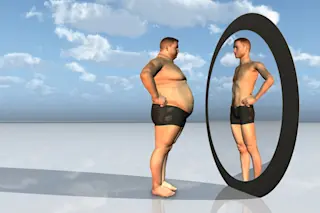[This article originally appeared in print as "The Better to Fool Others."]
Why do we lie to ourselves? That’s what evolutionary biologist Robert Trivers has spent 30 years trying to figure out.
“Our sensory systems are organized to give us a detailed and accurate view of reality,” he says, “but once this information arrives in our brains, it is often distorted and biased to our conscious minds.” We repress painful memories, create false ones, rationalize immoral behavior and jack up our self-esteem. We deny ourselves the truth.
Trivers, a professor of anthropology and biological sciences at Rutgers University in New Jersey, is not as well-known to the public as, say, Harvard’s Steven Pinker or E.O. Wilson. Evolutionary biologists, however, put him in a class by himself.
Pinker has called him “one of the great thinkers in the history of Western thought.” In the early 1970s, Trivers did for evolutionary biology ...














